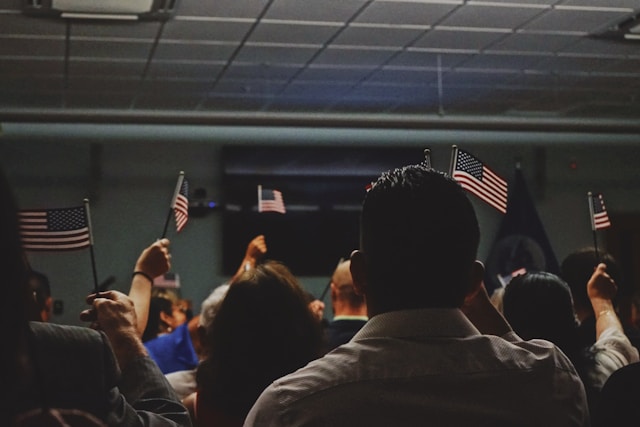So, you’ve met the love of your life and you’re ready to settle down. There’s just one problem: they’re not a U.S. citizen, and neither of you know how to start the immigration process.
Don’t worry! Foreign nationals can reunite with their sweethearts in the States through either the K-1 fiancé visa or the marriage visa. Let’s look at each of these visa options and determine which is the best choice for you and your beloved.
K-1 Fiancé Visas
The K-1 fiancé visa is a temporary visa designed for couples who plan to marry in the United States. One couple member must be a U.S. citizen (lawful permanent residents or green card holders are ineligible), the couple must have met within the past two years, and they must marry within 90 days of both parties arriving in the U.S.
Now, if you think planning a wedding in 90 days seems impossible, never fear. The processing time to get approved for a K-1 visa is between 12 and 18 months, so you still have some time to plan a beautiful celebration – though you may need to find rather flexible vendors and venues.
It’s also important to note that the newlywed phase may be slightly more stressful with a K-1 visa. As soon as you’re married, you’ll need to begin adjusting your legal status to an immigrant – which can be a long, tedious process during which you cannot legally work.

Marriage Visas – The Conditional Resident Spouse Visa
If you and your sweetheart are already wed (or plan to get married outside the U.S.), you can apply for a CR-1 spouse visa, also known as a marriage visa. Couples are eligible for this visa if one party is a U.S. citizen, permanent resident, or green card holder, and if the couple is already married (and the marriage is determined lawful and not for fraudulent purposes).
Once the government approves a CR-1 visa, the immigrant spouse can travel to the United States and receive a green card upon their arrival. This can be great for individuals who want to begin working in the States right away, as their green card allows them to legally work in the country.
However, the marriage visa does come with one drawback: it often takes much longer to receive approval. CR-1 visas take 13 months or more to process on average, which means a couple may be separated much longer than they’d like to be.
Which is Right for Us?
When deciding which visa to pursue with your sweetheart, it’s important to consider your unique circumstances. Do you want to wed ASAP and don’t mind some time as a single-income family? The K-1 visa will get your fiancé into the country much quicker. Can you tie the knot outside the States and live apart (or together outside the country) while you wait for visa processing? A marriage visa might be a better option for the long term.
K-1 Fiancé Visa and Marriage Visa Help from Expert Attorney in Los Angeles
Ultimately, the “right” choice will vary from couple to couple – but one choice that’s always beneficial is to contact an immigration attorney. Immigration is incredibly complicated, and a legal expert like Saam Borhani, who can help you navigate the process so you don’t delay your happily ever after a moment longer. Mr. Borhani can help address potential issues such as previous immigration violations or criminal history, and ensure the application process is handled accurately and efficiently.
Comparing the K-1 Visa and CR-1 Visa
| K-1 Visa | CR-1 Visa | |
| Purpose | For fiancé(e) of U.S. citizen to enter the U.S. for marriage. | For spouse of U.S. citizen to enter the U.S. for marriage. |
| Forms Needed | Form I-129F filed by U.S. citizen petitioner with USCIS. | Form I-130 filed by U.S. citizen petitioner with USCIS. |
| Wait Time | Typically takes several months for approval. | Typically takes longer for approval compared to K-1 visa. |
| Marriage Requirement | Must marry within 90 days of arrival in the U.S. | Already married at the time of application. |
| Documentation | Evidence of relationship, intent to marry, financial support. | Evidence of bona fide marriage, financial support, shared life. |
| Fiancé(e) Enters U.S. | Enters the U.S. with a K-1 visa. | Not initially granted entry; must apply for immigrant visa abroad. |
| Adjustment of Status | After marriage, must apply for adjustment of status to obtain green card. | Granted conditional green card upon entry, then applies to remove conditions. |
| Conditional Residence | Not applicable; immediate permanent resident status. | Granted conditional resident status upon entry. |
| Residency Requirement | No waiting period to apply for work authorization. | Conditional green card valid for 2 years; must apply to remove conditions before becoming a permanent resident. |
| Travel Outside U.S. | May leave the U.S. after entry with advance parole. | Can travel outside the U.S., but lengthy absences may affect residency status. |
| Interview Process | Both petitioner and beneficiary may be interviewed. | Both petitioner and beneficiary may be interviewed. |
| Immigration Status Upon Entry | Enters the U.S. on a non-immigrant visa (K-1) and adjusts status to permanent resident. | Enters the U.S. as a conditional permanent resident. |
Sources:
Travel.state.gov
openai.com




